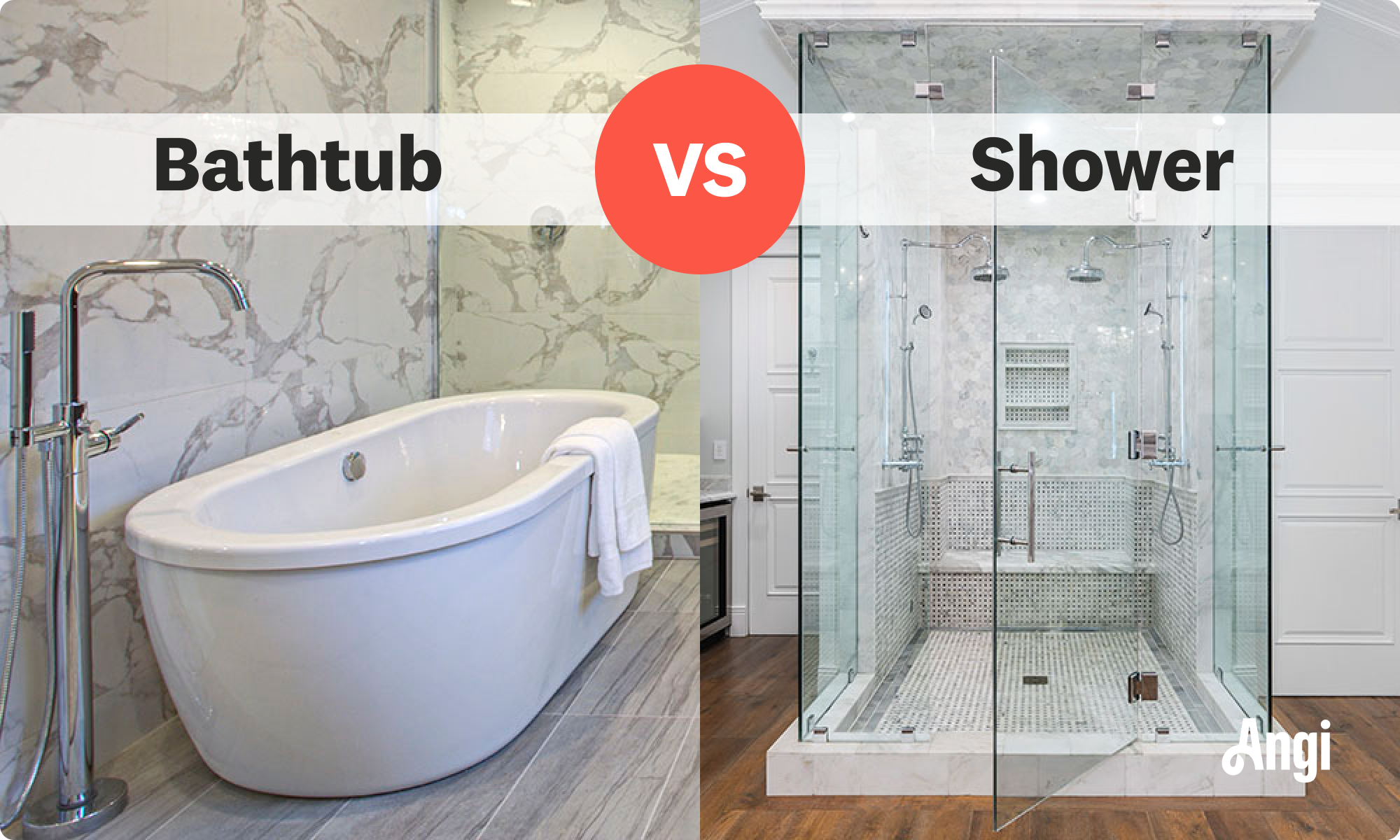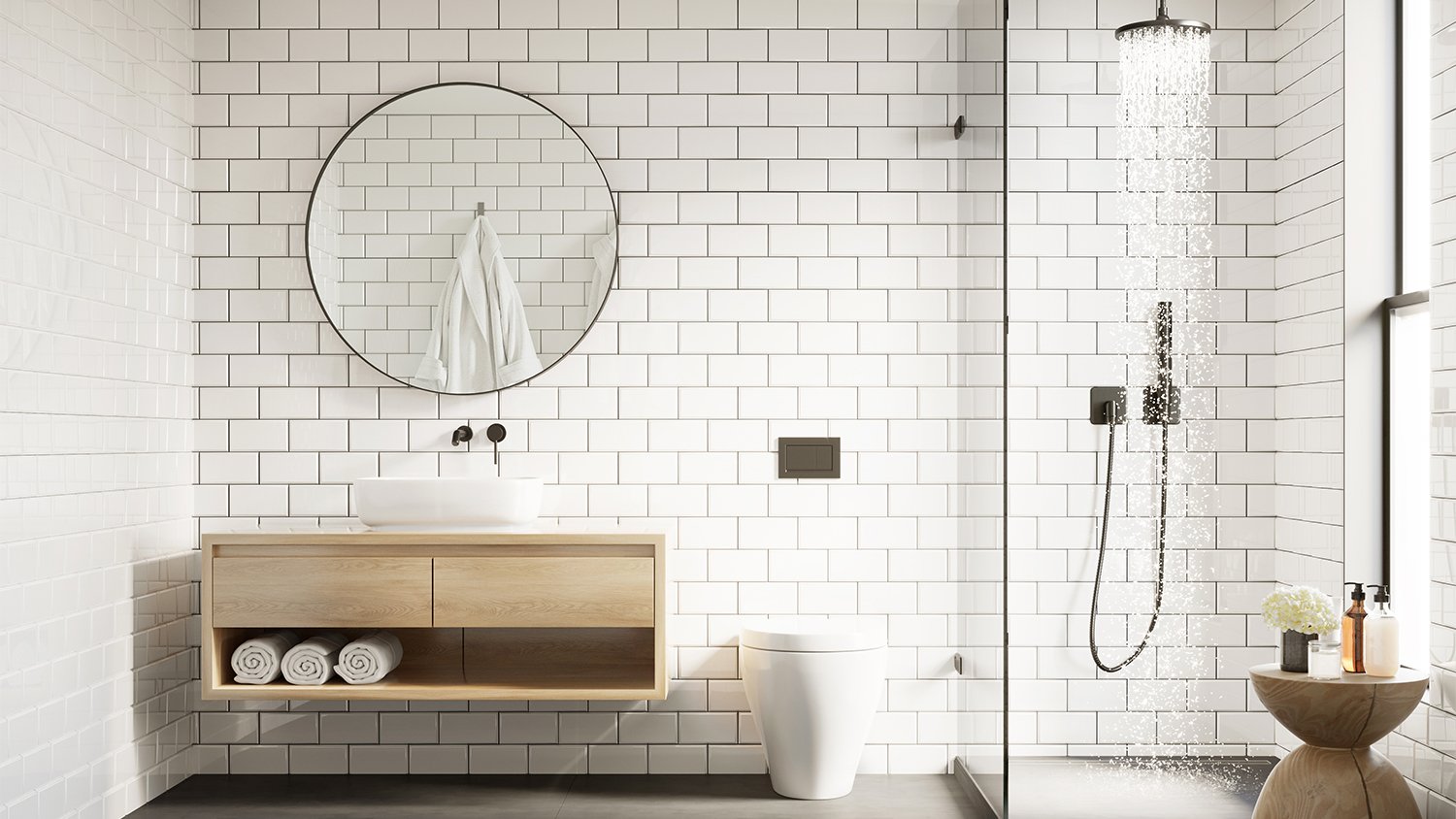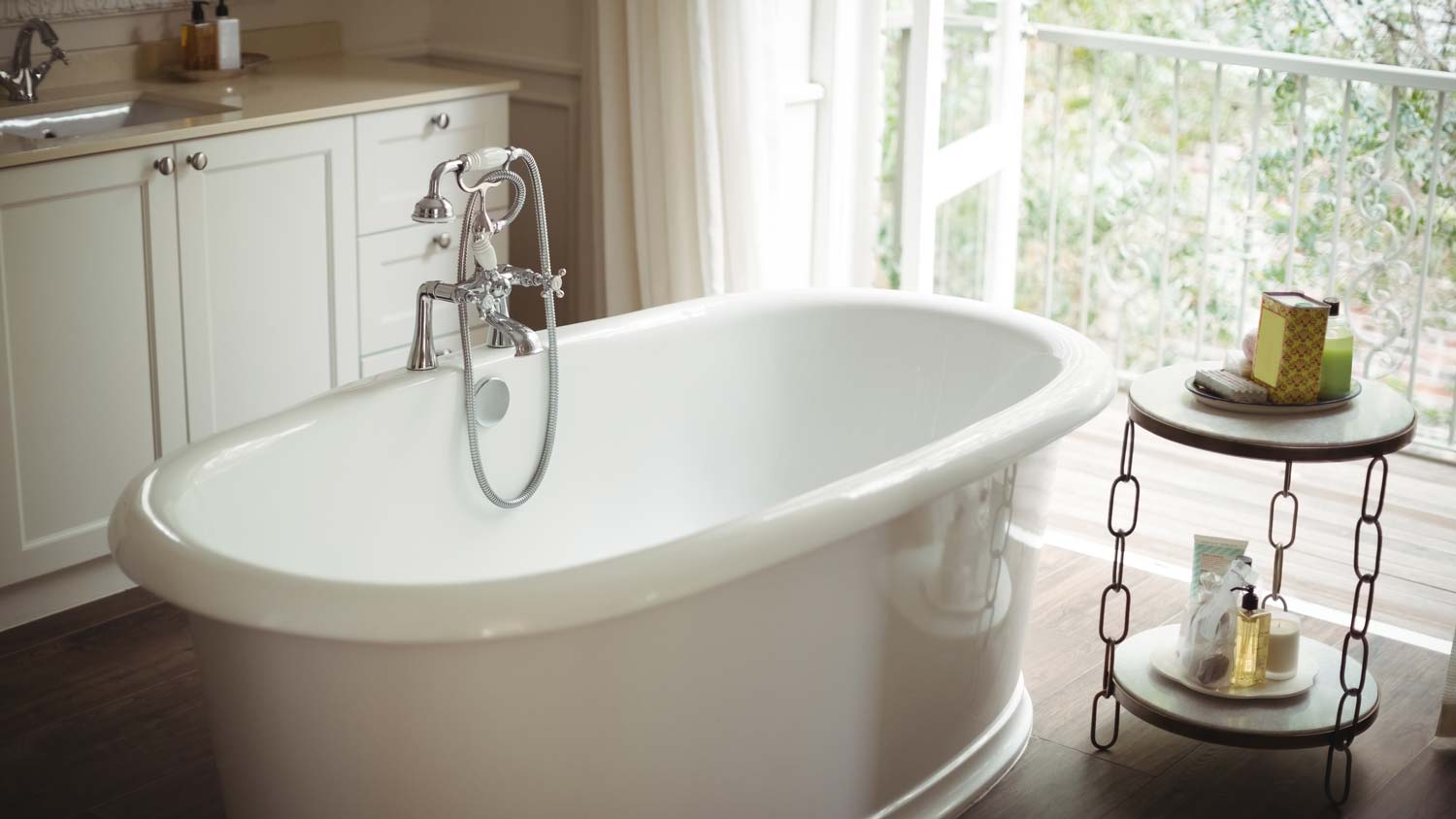
Here's a look at the cost to build a garage with an apartment on your property for a rental or in-law apartment.
Splish splash, a shower or a bath?


Showers allow for a more luxurious experience and are more accessible.
Bathtubs make relaxing soaks possible and are ideal for families with children and pets.
Resale value depends on the market, but it’s a good idea to have at least one bathtub.
Tubs cost $215 to $9,400 to install, while showers cost $450 to $10,000.
Some people love showers for the ability to get clean and get out the door quickly, to say nothing of their water-saving properties. Others prefer the relaxation of a hot bath after a long day and believe in taking time to smell the roses (or rose-scented bath soaps).
Choosing whether to install a shower or tub in your bathroom is an important decision that goes beyond ROI: It’s a bathroom element that you and your family will use every day, so it should meet your particular, practical needs. Consider our breakdown of all the pros and cons of bathtubs versus showers before you commit to that marble whirlpool model.


It’s important to take a look at each option individually when weighing the best choice for your bathroom. Here are some pros and cons of showers:
Uses less water
Takes up less floor space
Uses less energy from the water heater
Allows for a more luxurious, spa-like shower, with elaborate showerhead options and extra features, such as rain-style or steam, built-in seating, and door-less designs, which require less cleaning and maintenance
Variety of materials to choose from, like fiberglass and natural stone
Accessible—can be equipped with grab bars, benches, and/or non-slip tiles
Shower doors require regular cleaning to prevent mineral build-up, and curtains often need replacing
Difficult to bathe children and pets
Harder to fix leaks
Creates higher humidity in your bathroom, which could be problematic if you have poor ventilation

If you love the look of a clawfoot bathtub, consider all the pros and cons before making your final decision.
Excellent for relaxation
Useful for bathing small children and pets or hand-washing delicate clothing items
Classic aesthetics, with many design options (size, material, style) such as clawfoot, freestanding, soaking, and walk-in
Freestanding units can be placed nearly anywhere in your bathroom
Many add-on features, such as jets or whirlpools
Without a walk-in version, it might not be accessible
Uses more floor space than a shower
Uses more water
Requires a water heater with enough capacity to fill a bathtub
Long wait time to fill to be able to bathe
Here are a few key considerations when deciding whether to have a bath or shower in your bathroom. Ultimately, though, the decision will depend on your priorities and specific needs.
Overall, bathtub costs range from $215 to $9,400 installed, while showers cost $450 to $10,000. On the higher end of the spectrum, you’ll find whirlpool tubs and walk-in showers.
A standard-sized tub will take up more space in your bathroom than a standard shower will, at 13 square feet versus 9 square feet, respectively. If you have a petite bathroom, replacing your tub with a shower could allow more storage or a larger, higher-end shower.
If you only have one bathroom, it’s wise to stick with a tub, as that can be appealing to many buyers. That said, you should consider your target resale market. If you live in a condo or apartment in a denser neighborhood with younger residents, having a shower instead of a bathtub likely won’t make or break the deal. But if you live in a suburban area with lots of families, a bathtub could be a much bigger issue.
If accessibility is a concern, a shower is likely the best choice, with the addition of a bench, grab bars, and non-slip tiles. Depending on the needs of those in your home, you can also consider the cost of an accessible tub.
Many also enjoy having the option to use a bathtub for relaxing soaks after a tough workout or a long day at work, so if this is a factor, the cost can be worth it.
According to the Alliance for Water Efficiency, showers under 12 minutes only use an average of 2.1 gallons of water per minute, for a total of roughly 21 gallons per 10-minute shower. Compare this to the amount used for a standard bathtub, which requires 25 to 40 gallons or 80 to 100 gallons in a whirlpool. If you’re concerned about saving water (and energy required by your water heater to produce large amounts of hot water), a shower is a better option.
While reaching over the bathtub wall to clean is inconvenient, maintaining a shower takes more effort in the long run. Showers often feature tile on the surround or as the shower pan, which requires frequent attention and periodic regrouting—or at least making sure the grout is clean and sealed. If the shower has glass doors, you’ll also have to remove soap scum or residue on a regular basis.
Picking between a shower and a tub ultimately comes down to your personal preferences and budget. But there are some clear decision-making factors that may sway you towards a final decision.
If space is at a premium in your bathroom, a shower is going to be a better decision. The average bathroom is around 40 square feet. If your space is under that, fitting a shower in your bathroom layout will leave the space feeling less cramped.
If you plan on living in your house for many decades, accessibility will become increasingly important. Both showers and bathtubs offer accessibility upgrades. Which you choose will be dependent on your household’s needs. For instance, showers can offer more flexibility for wheelchair access, while a bathtub can provide more stability and decrease the risk of slipping.
If water usage is a focus area, showers use less water. You’ll save money if you can keep those morning showers short (around 15 minutes or less).
You’re likely familiar with the bath and shower combination, a space-saver that provides the best of both worlds. On average, shower/tub combos cost anywhere between $300 and $2,000, depending on style, extra features, and size. Keep in mind that a combination shower/tub offers fewer design options (and sizes) than separate fixtures, so if you’re aiming for a particular look, you’ll want to purchase your shower and bath separately.
The cost to install a new bathtub averages about $5,500. However, costs can vary dramatically depending on the type and size of the tub and how much reinforcement the floors beneath the tub require. For example, a simple tub replacement can cost as little as $200, while a large luxury tub with jets may cost $14,000 or more.
Meanwhile, the cost to install a shower averages about $8,250 and varies just as much as with tubs. Expect costs anywhere from $400 to $17,000, though most homeowners can expect to pay $4,500 to $12,400.
If you're converting a shower to a tub, you'll have to factor in removal costs for the shower itself and any walls that may be in the way. You may also need to relocate plumbing and electrical wiring, which requires a licensed professional. In all, shower-to-tub conversion costs range from $2,000 to $10,500. Tub-to-shower conversion costs are similar at $1,200 to $15,000.
In most cases, we don't advise DIY tub or shower installation. Mistakes can be costly in the long run—improperly set glass shower doors or enclosures can lead to breakage or leaks. DIY plumbing can result in significant, costly water damage. Jets and other add-ons may require electrical work, which can be highly dangerous.
Unless you have plumbing experience, the only time you should handle the installation yourself is with a liner or prefabricated shower kit. These cost about $500 to install, including the cost of materials. Any other project should be handled by a shower installer near you. Expect to pay anywhere from $400 to $2,000 in labor alone, plus the cost of materials.
From average costs to expert advice, get all the answers you need to get your job done.

Here's a look at the cost to build a garage with an apartment on your property for a rental or in-law apartment.

Home exterior remodel costs depend primarily on what you choose to upgrade. While a significant investment, exterior work can have a high ROI.

The cost to install a bathroom fan will vary based on multiple factors, including the bathroom size, how many fans you need, the type of fan, and more.

What is a range in a kitchen, and which is best for your cooking needs? Learn about the various types of kitchen ranges and what to consider before buying one.

Make choosing your toilet seat a cinch using this guide. Learn about different toilet seat types, shapes, materials, and features.

An updated bathtub can give a bathroom a whole new look. Find out how much it costs to replace a bathtub in Dallas, TX, including prices by type and labor costs.